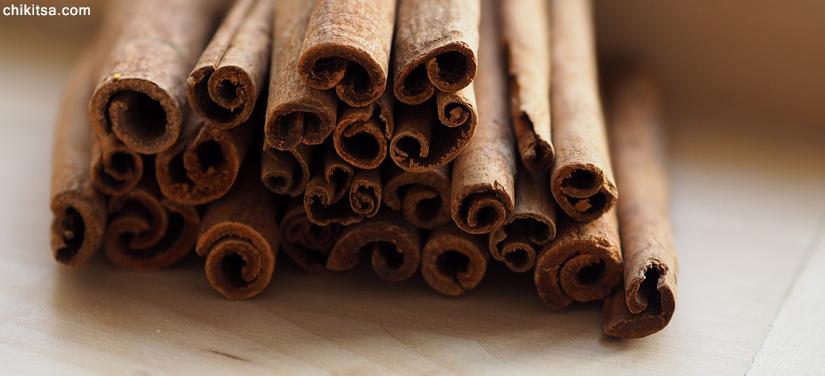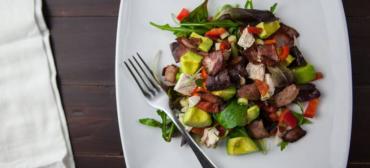Best Foods To Eat During Fever and Sore Throat

Before explaining to you what should be or should not be eaten during an episode of fever and sore throat, it is important for you to understand what causes a sore throat and how to know if you have one. A sore throat is a pain or a feeling of irritation in the throat, often associated with common cold and flu. A sore throat is one of the most common complaints for which a patient seeks relief. The cause is most frequently a viral infection, but may also be associated with a bacterial or fungal infection of your upper respiratory tract.
Causes of a Sore Throat And Fever
1. Viral Infection - The most common being the influenza virus. Other viruses such as those responsible for measles, mumps, and chickenpox also cause a sore throat along with other symptoms.
2. Bacteria Infections – Strep throat being the most common one affecting both children and adults.
3. Fungal Infections – Candida or chlamydia, responsible for aphthous ulcers of the oral cavity and the throat.
4. Allergic reaction to drugs, pollen, dander, etc.
5. Exposure to toxic fumes, chemicals, and irritants.
6. Trauma or injury.
7. Tumors
Signs and Symptoms
- Pain and discomfort in the throat.
- Difficulty in swallowing.
- Fever associated with body ache is usually present.
- Change in tone of voice.
- Loss of appetite is usually present.
- Adjacent neck glands may be swollen.
What to Eat During Sore Throat and Fever?
Despite all the wide range of treatment options available, it is equally essential to follow an appropriate diet and regimen and various auxiliary measures to aid the process of healing.
1. Warm Liquids
water, chamomile tea or a clear vegetarian soup helps in soothing the throat. Having plenty of liquids not only helps in flushing out all the toxins but also helps the patient to remain well hydrated.

2. Apple Cider Vinegar
Has documented benefits in relieving a sore throat. Can be used to gargle.
Apple cider vinegar can also be consumed 2-3 times a day along with a pinch of salt in warm water.
3. Honey
A glass of warm water with lime and honey aids in draining the lymphatic glands thereby reducing infection.
Plain honey forms a layer inside the throat which lessens the scrappy and irritating sensation.

4. Ginger
Ginger tea with a spoonful of honey in a cup of warm water soothes the throat. Turmeric and ginger boiled with hot milk are potentially anti inflammatory and anti infective.
Regular tea with a deliberate amount of ginger root also eases an inflamed throat.

5. Cinnamon
Cinnamon contains antiviral, anti fungal and anti bacterial properties. Cinnamon tea can either be purchased from stores or cinnamon can be added to green or black tea. The tea can be had before sleep.
Also, cinnamon almond milk also helps to reduce inflammation significantly.

6. Fenugreek
Has potential antibacterial and antifungal properties. It also helps to reduce throat pain. It can be consumed with warm water and honey.
7. Consuming A Bland Diet Is Generally Advised So That The Spices Added To Your Meals Do Not Irritate The Throat Even More
Apart from the long list of dietary options to follow during your illness, it is specifically advised that food such as curds, cheese, smoothies need to be avoided during an episode of a sore throat and fever. Gargling with warm, salt water and inhalation of steam is equally effective in reducing swelling and infectivity.
The basis of a homoeopathic prescription is solely based upon symptom-similarity. A homoeopathic remedy is prescribed to an individual only if the symptoms of that particular person, match with symptoms of the remedy. Some commonly used Homoeopathic medicines for the treatment of sore throat and fever are:
1. Aconite: Complaints appear from exposure to dry, cold weather or extremely hot weather. Fever and sore throat occur suddenly. Fever with restlessness and anxiety. Does not want to be disturbed. Sneezing with watery nasal discharge. Throat appears red and dry with a burning sensation. Tonsils appear red and swollen.
2. Arsenicum Album: Complaints from bad effects of fruits, alcohol and spoiled food. The throat is swollen, red with a burning sensation. Difficulty in swallowing. Burning sensation in eyes and nose with watery discharge. High grade and exhausting fever.
3. Belladonna: Sudden onset of complaints. High grade fever. No thirst during fever. Throbbing type of headache. The throat is red and swollen with enlarged painful tonsils. Difficulty in swallowing liquids. A sensation of a lump inside the throat. A headache worse from light, noise, smell, lying down and motion.
4. Capsicum: Fear of being exposed to cold air. Sore throat of smokers and drinkers. Pain in the throat along with inflammation of the Eustachian tube. Hot and dryness sensation inside the throat. Swelling of throat and tonsils. Difficulty in swallowing food. A tendency to catch a cold.
5. Kali Bichrom: Indicated in a subacute stage of infection. Catarrhal inflammation of the respiratory tract with tough, stringy discharge. Violent sneezing with watery nasal discharge. Nose block. Throat feels dry and rough. Inflammation, swelling and redness of throat. Tough and stringy discharge from the throat. A Headache over eyebrows.
6. Hepar Sulph: General oversensitivity to all external impressions. Splinter-like sensation inside the throat. The sensation of a plug in the throat while swallowing. Pain in throat extending till the ears. Offensive smell of mouth. Tonsils are swollen and enlarged with a tendency to pus formation.
7. Sabadilla: A sore throat. Complaints begin on the left side. Pain in throat worse from empty swallowing. The sensation of a lump in throat wants to swallow constantly. Chronic sore throat, from cold air and relieved from warm food and drinks. Constant sneezing and burning of eyes with lachrymation and watery nasal discharge.
8. Sanguinaria: Indicated in acute and chronic stages of catarrhal infection. Acute and chronic inflammation of the pharynx. Burning sensation in the throat. Influenza. Excessive sneezing. Profuse, watery nasal discharge with a burning sensation in the nose. Nose blocked. Throat feels dry, rough and constricted. Right tonsil swollen and sore. Voice altered.
Despite, the various options of home remedies to choose from, if the complaints do not subside or increase in intensity, it is essential to consult a qualified physician for a complete course of treatment.









